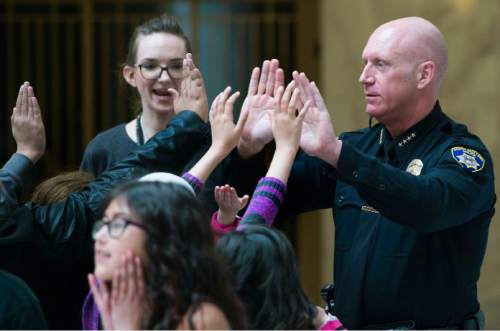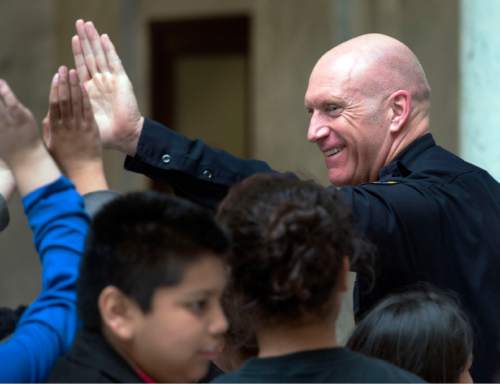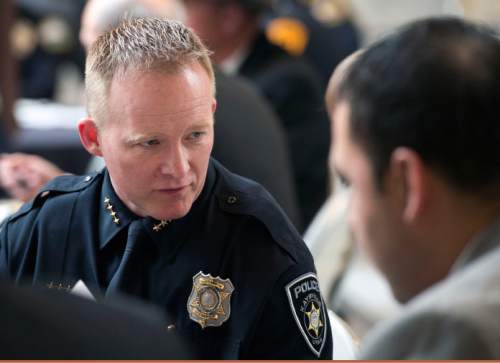This is an archived article that was published on sltrib.com in 2016, and information in the article may be outdated. It is provided only for personal research purposes and may not be reprinted.
One Utah lawmaker is seeking to cut victim advocates out of court proceedings — a move police and prosecutors say would undermine prosecution of rape cases.
HB399, from Rep. LaVar Christensen, stipulates the advocates "are not part of a criminal prosecution and may not interfere with or undermine" defendants' rights.
Sexual violence groups, lawmakers and police chiefs gathered Monday at the Capitol in part to criticize the measure, saying it would stymie efforts to help people recover from violent attacks and navigate the courts.
"There's a lot of pieces to this that are really damaging," said Alana Kindness, executive director of the Utah Coalition Against Sexual Assault (UCASA).
Christensen, a Republican from Draper and an attorney, did not return phone messages and an email seeking comment Monday.
Prosecutors and police departments typically assign a victim advocate to people who report being raped or sexually assaulted. The advocates help set up medical or counseling services and sometimes speak on their behalf to police or in court.
Victims of sex crimes often are reluctant to appear in court, UCASA notes. Some fear retribution from attackers. Others are intimidated by the court system even when evidence in their favor. The advocates often read a statement written by the victim to the judge or jury before a defendant is sentenced. Sometimes, they give witness testimony during a trial.
On Monday, about 100 Utah police officers listened to Kindness and others at the event that was planned to coincide with a yearly chiefs' lunch.
Kaysville Police Chief Sol Oberg said the advocates are important allies for victims who are intimidated by police or unsure of the courts process, especially if their extended family or community members believe they should keep quiet.
Oberg notes that once someone is charged with a crime, he or she can hire an attorney or agree to have a public defender represent them. But for the person who has been assaulted, the victim advocate may be "the only person in their corner."
If the advocates were forced to play a smaller role, Oberg fears, fewer victims would cooperate. It could allow perpetrators to continue to rape or abuse people with impunity, he said — potentially over generations.
"Those tend to be crimes," he said, "that have a pattern."
West Valley City Police Chief Lee Russo agreed.
"There should be no reason," Russo said, "that we limit advocacy inside the criminal justice system."
Last year, the Legislature tweaked Utah's criminal code to clarify that having sex with a sleeping or incapacitated person is rape.
"We've made such strides," said Rep. Angela Romero, the Salt Lake City Democrat who brought the 2015 bill. "I would hate for us to roll back."
Christensen's measure also would require law enforcement to review potential consequences of making a false allegation.
But Donna Kelly of the Utah Prosecution Council maintains there is no need. Sexual abuse is falsely reported at roughly the same slim rate as other crimes — about 5-8 percent, she said.
The notion that the majority of reported sexual assaults are made up "is a red herring. ... When people bring it up, they're perpetuating misinformation" Kelly said.
In most cases, making a false report is a misdemeanor punishable by up to six months in jail and a $1,000 fine.
A Tuesday morning hearing has been scheduled for the bill in the House Judiciary Committee in Room 20 of the House Building. The item is fourth on the agenda for a meeting beginning at 7:45 a.m. The fiscal note says passage of the bill would result in a loss of $18 million in federal funds.
Twitter: @anniebknox







